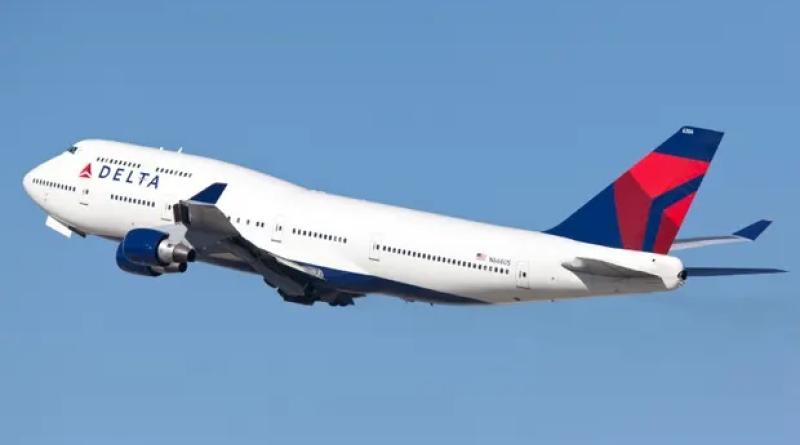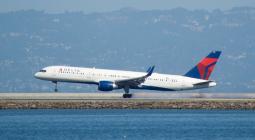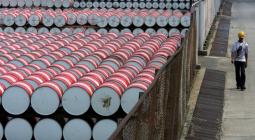Delta Air Lines faces lawsuit over $1bn carbon neutrality claim

Delta Air Lines is facing a lawsuit over its $1bn carbon neutrality claim which plaintiffs say is “false and misleading” as it relies on offsets that do little to mitigate global heating.
In February 2020, the US airline announced plans to go carbon neutral, pledging $1bn to mitigate all greenhouse gas emissions from its business worldwide over the next decade. It included plans to purchase carbon credits generated from conserving rainforest, wetlands and grasslands along with decreasing the use of jet fuel and increasing plane efficiency.
The new legal action, filed in California on Tuesday, targets Delta’s statement that it is “the world’s first carbon-neutral airline”, a claim it has made in adverts, LinkedIn posts, in-flight napkins and comments by company executives, according to the lawsuit.
The class-action lawsuit says Delta’s carbon neutrality claim is demonstrably false as it heavily relies on junk offsets that do nothing to counteract the climate crisis. It alleges that customers would have purchased Delta tickets believing they had no impact on the environment and many would not have bought them without the carbon neutrality claim.
A Delta spokesperson said: “This lawsuit is without legal merit. Delta is a vigorous advocate for more sustainable aviation, adopting industry-leading climate goals as we work towards achieving net-zero carbon emissions by 2050. Delta committed to carbon neutrality in March 2020, and since 31 March 2022, has fully transitioned its focus away from carbon offsets toward decarbonisation of our operations, focusing our efforts on investing in sustainable aviation fuel, renewing our fleet for more fuel-efficient aircraft and implementing operational efficiencies.”
“The language carbon neutral is so provocative,” says Krikor Kouyoumdjian, a partner with the legal firm Haderlein and Kouyoumdjian LLP which is bringing the case. “When companies say: ‘Don’t worry about our emissions, they’re sorted,’ they are communicating complacency. They are letting consumers pay to feel better and not have to worry about the impact of their consumption. But that is counterfactual to reality. It is not something that you can pay away.
“When I hear ‘carbon neutral’, I think you’re not doing anything wrong, you’re not hurting the environment in any way. It’s like you don’t exist. That’s what the words mean to any rational person: that we can participate in your business without any guilt. Most of us who care about the environment walk around with this giant cloud of guilt that our very existence hurts the environment in a bunch of ways.”
The case argues that there is a market premium for green products and that Delta has profited from a misleading environmental claim. It cites scientific and journalistic evidence that there are deep flaws with carbon credits from the unregulated voluntary market that Delta has purchased for its environmental claims.
In January, a nine-month investigation by the Guardian, the German weekly Die Zeit and the investigative group SourceMaterial found Verra rainforest credits used by Disney, Shell, Gucci and other big corporations were largely worthless, often based on stopping the destruction of rainforests that were not threatened, according to independent studies. The lawsuit against Delta mentions the investigation. Verra strongly disputed the findings.
Haderlein and Kouyoumdjian said they wanted the company to drop the carbon neutrality claim and explain the full scale of the pollution that their business causes.
“The voluntary carbon offset market cannot meaningfully guarantee carbon neutrality from a company in the way it’s currently being operated. The market is replete with severe methodological errors that appear both intentional and unintentional. In our opinion, it’s frankly reckless to predicate a company’s ESG strategy on climate change on the basis of the purchase of these offsets,” says attorney Jonathan Haderlein.
This is more than a climate change case. This is also a business case. People are paying more for these greener products. If a company like Delta is raking that premium in by claiming they do it first and then doing a huge advertising blitz to try to get people flying again, we think that’s unfair to other companies that are buying higher-quality offsets or doing far better sustainability. And frankly, unfair to consumers.”
At the time Delta launched its plans to go carbon neutral in 2020, its chief executive, Ed Bastian, said: “There’s no challenge we face that is in greater need of innovation than environmental sustainability, and we know there is no single solution. We are digging deep into the issues, examining every corner of our business, engaging experts, building coalitions, fostering partnerships and driving innovation.”
The new lawsuit comes amid a wider regulatory crackdown on green claims in the UK and Europe. In New York, Evian is being sued over its carbon neutrality claim which relies on offsets. Danone, who own the water brand, has argued it should be thrown out and say the case “defies science and common sense”.
A judge will now decide whether or not to progress the case.
cover photo:The case argues that there is a market premium for green products and that Delta has profited from a misleading environmental claim. Photograph: Jetlinerimages/Getty Images






